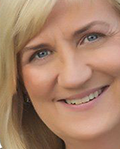A hallmark feature of a PLC-based school is that everything is focused on learning. The three big ideas of a PLC—(1) focus on learning; (2) build a collaborative culture; and (3) create a results orientation—embed the very nature of learning into the work of both the students and the staff. A learning culture is a formative culture, so it makes sense that in the PLC literature, heavy emphasis is placed on the work of common formative assessments. A shift in practice is required to support the desired shift in beliefs. But to think that PLCs only engage in the work of common formative assessments is to fall into the trap of either-or thinking. We need to engage the genius of “and” to create a healthy, balanced, valid, and reliable common assessment system. Quality assessment systems require both formative and summative assessments, and one type of assessment is not lesser than the other. Each serves a critical role in improving and ultimately proving student mastery. Collaborative teams need to engage in the work of common summative assessments for three reasons: (1) centering, (2) certifying, and (3) celebrating.
Centering
Creating the common summative assessment before writing any common formative assessments centers teams on what needs to be accomplished with their instruction, curriculum, and assessments. When this happens, teams actually find time because they can be laser-like in their instruction and decisive on what must be added, deleted, or modified in their curriculum along the way. Most importantly, formative assessments (which answer the question “How can I help you learn more?”) form the rungs on the scaffold to success. If there is no definitive end assessment planned, then the rungs cannot stay in tight formation to hold the scaffolding together. Teams must develop a common summative assessment in order to center their collaborative work.
Certifying
Summative assessments answer the question “What do you know at this moment in time?” Its purpose is to certify learning, and it is comprehensive—putting all of the little steps together in meaningful ways. Teams do not go to practice (formative assessment) every day for the sake of practice. They go to practice for the thrill of the big game (summative assessment) where they can integrate their skills and knowledge to accomplish something significant. This is a critical step that cannot be missed in the assessment process. And if teams create a list of priority standards that they want all learners to master, then summative assessments are the only way to prove the promise has been met.
Celebrating
Success breeds success. When learners can walk into a summative setting with confidence (because the formative pathway they experienced has set them up for success); engage in meaningful, comprehensive, and provocative summative assessments that will showcase their mastery; and generate results that truly exhibit how much they have learned along the way, then there can be much rejoicing. There will surely be an increased sense of hope and efficacy. There will also be a willingness to try again. It turns out that collaborative teams need that same moment of joy, especially after experiencing what might have been a lengthy unit filled with lots of little formative assessments, focused data conversations, and intense planning for interventions and enrichments. Summative assessments put it all back together again, and the results can tell the world, “We have arrived.” Celebration is serious business in the realm of motivation.
In a culture that is focused on learning, collaborative teams must engage in the work of centering, certifying, and celebrating. Summative assessments help prove our results. The question isn’t “Should we use common summative assessments in our collaborative work?” Rather, the question becomes “What comprehensive common summative assessments could we create and employ that would be so provocative and relevant our learners couldn’t wait to get there?”
Posted in:
Tags:
Cassandra Erkens
Cassandra Erkens is the author of eight books with more currently in progress, as well as chapters in several anthologies. Additionally, she is a facilitator, a trainer of trainers, an educator, and a coach. Her work focuses on educational topics, including assessment, instruction, leadership, school improvement, and professional learning communities. As an educator and recognized leader, Cassandra has served as a middle and high school English teacher, a director of staff development at the district level, a regional school improvement facilitator at the state level, a director of staff and organization development in the private sector, a contracted curriculum developer for trainer-of-trainer programs in major education companies, and an adjunct faculty member for multiple universities. Today, she is a lead architect for the Assessment Collaborative at Solution Tree.

